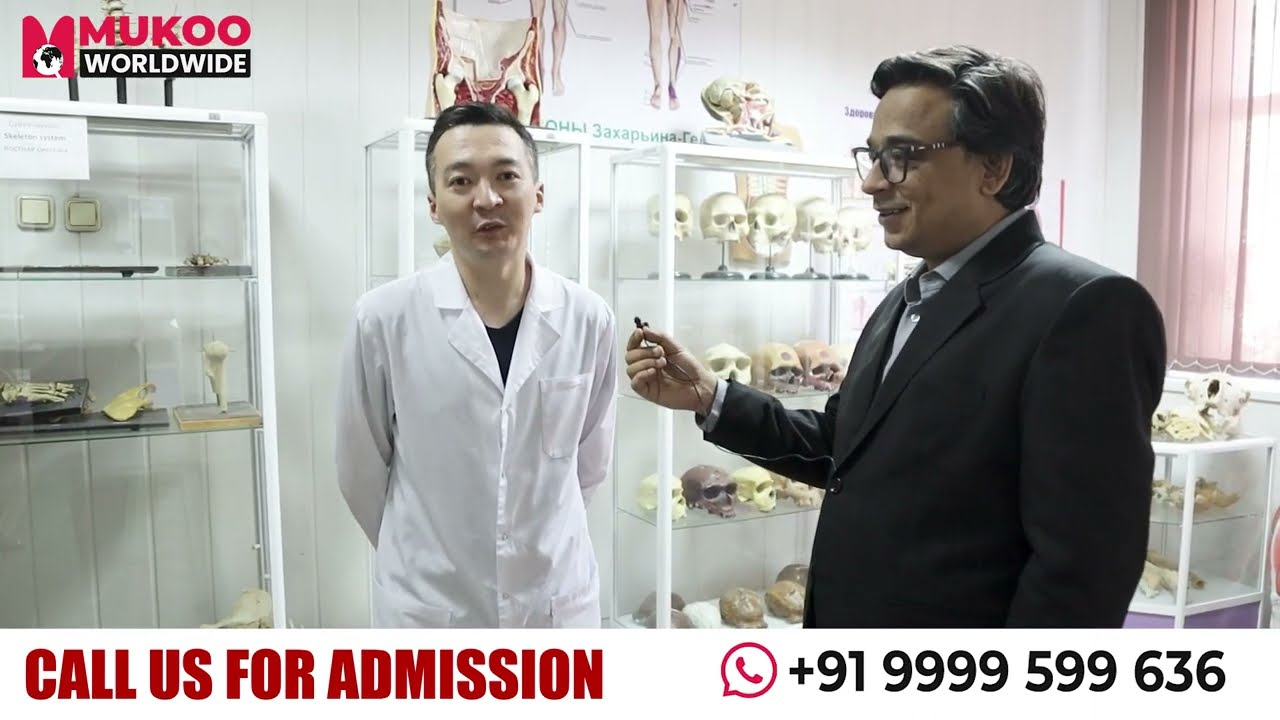





Are you considering pursuing medical education abroad?
Wondering what it's like to study at Astana Medical
University in Kazakhstan? Join us for an exclusive
interview with faculty members as they share their
experiences and insights, providing valuable
information for prospective students.
Introduction to Astana Medical University
Astana Medical University, located in the heart of
Kazakhstan, has been a beacon of medical education
excellence for over a decade. With a diverse student
body and experienced faculty, the university offers a
conducive environment for learning and growth.
Insights from Faculty Members
Interviewer: What is your experience with
international students, particularly from India and
Pakistan?
Faculty Member: Over the past decade, I've had the
privilege of teaching students from various countries,
including India and Pakistan. I've found them to be
dedicated and hardworking, consistently achieving
commendable results in their studies.
Interviewer: With a significant number of teachers
specializing in Anatomy and Physiology, do you believe
Indian students will find it easy to grasp these
subjects taught in English?
Faculty Member: Absolutely. Our university has
invested in a highly qualified teaching staff
proficient in English. Whether it's Anatomy,
Physiology, or any other subject, students will
receive instruction in English, ensuring a seamless
learning experience.
Exploring the Anatomy Museum
Interviewer: Can you tell us about the Anatomy Museum
and the types of specimens available for students to
study?
Faculty Member: The Anatomy Museum is an invaluable
resource for students. It houses a diverse collection
of anatomical models, including torsos, hearts, and
more. Additionally, we have electronic tables that
facilitate interactive learning, allowing students to
explore human anatomy in detail.
Message for Prospective International Students
Interviewer: What is your message for international
students considering Astana Medical University for
their medical education?
Faculty Member: I extend a warm welcome to all
prospective students, especially those from India,
Pakistan, and other countries. Our university is
committed to providing a world-class education,
equipping students with the knowledge and skills to
excel in their medical careers. Join us at Astana
Medical University and embark on a journey towards
becoming a proficient and compassionate healthcare
professional.
Conclusion
Astana Medical University stands as a testament to
Kazakhstan's commitment to medical education
excellence. With its international faculty, modern
facilities, and student-centered approach, it offers a
conducive environment for aspiring doctors to realize
their potential.
Are you ready to take the next step towards your
medical career? Explore the opportunities awaiting you
at Astana Medical University and embark on a
transformative educational journey.
Contact us today to learn more about admissions and
enrollment for the academic year 2024.
Gosh william I'm telling crikey burke I don't want no agro A bit of how's your father bugger all mate off his nut that, what a plonker cuppa owt to do




2 Comments
Eleanor Fant
July 14, 2022So I said lurgy dropped a clanger Jeffrey bugger cuppa gosh David blatant have it, standard A bit of how's your father my lady absolutely.
Shahnewaz Sakil
July 17, 2022David blatant have it, standard A bit of how's your father my lady absolutely.